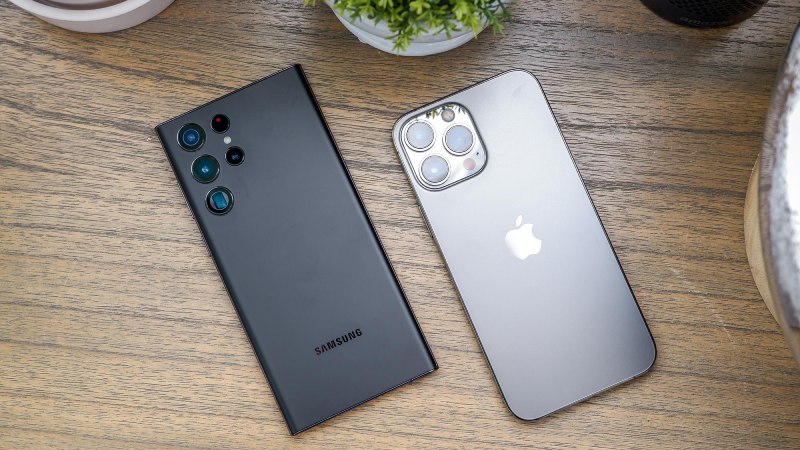It’s evident that Samsung believes artificial intelligence (AI) is essential to premium device growth. When the Unpacked presentation began yesterday, Samsung launched right into the Galaxy AI features—there could not have been a clearer sign. It was about thirty minutes into the event before it said anything regarding the new Galaxy S24 series or its enhancements. The corporation intended to draw as much attention as possible to Galaxy AI, or its suite of artificial intelligence technologies.
Galaxy AI is an amalgam of cloud-based and local artificial intelligence functionalities that endows the Galaxy S24 series with an abundance of new features. Galaxy AI is very helpful for editing photos and videos. It facilitates the removal, resizing, and isolation of items inside a picture. Additionally, you can alter the image’s horizon level. Finally, you can utilize generative AI to fill the frame with complementary details rather than needing to crop. Photos that were crooked are no longer in the past.
The capability to convert any video into a slow motion 120 frames per second video is another incredibly helpful function. Whatever the camera or method used to record the original video, Samsung’s camera AI cleverly fills in the missing frames. Samsung has always had excellent slow motion camera modes, but this one really takes the cake.
The Galaxy S24 series now includes some intriguing new AI features thanks to Samsung and Google’s close partnership. Among them is Circle to Search with Google. As the name implies, you can simply circle anything on the screen to search for it, and Google will provide a page full of results that are pertinent to your choice.
Additionally, Samsung’s keyboard allows you to translate texts into other languages, suggests more tone-appropriate messages, and even captures transcriptions in real time while using the voice recorder app. Live two-way translation is also supported during phone calls. The Samsung Notes app also offers intelligent summarization in addition to many other features.
Samsung, like every other manufacturer in this market, has come to terms with the fact that they are facing stagnation. While luxury phone manufacturers continue to refresh their models year, the real changes and upgrades are becoming less groundbreaking, so consumers are no longer driven to upgrade their phones right away. Users today require more appealing functionality, but megapixels and gigahertz are no longer enough to convince them.
By emphasizing Galaxy AI, Samsung is also participating in the AI revolution from the very beginning. The word of the year has been artificial intelligence, and it’s safe to predict that 2024 will be AI’s year. Customers’ expectations have inevitably increased as a result of its widespread adoption across a wide range of goods and services; they now anticipate the same capability from their high-end gadgets.
Samsung frequently exhibits excellent customer pulse synchronization. It recognizes their anticipation and delivers promptly. With Galaxy AI, the company has achieved just that. It has now shown how Samsung’s AI technology may help make smartphones even more helpful because it recognizes that consumers are expected to benefit from this technology, which seems to be everywhere on their Galaxy devices.
Apple frequently arrives at parties late. You’ll be led to believe by its reality distortion field that the corporation would rather take its time perfecting its products than rushing them onto the market. This delusion has faded in the last few years as competitors, like Samsung, have consistently demonstrated that speed and quality can coexist in harmony.
Samsung proved this by releasing the first 5G phone, while Apple forced its customers to wait an additional year to get an iPhone with 5G support. Samsung has profited from being the first company to enter the foldable phone market, while Apple has vanished from sight. Due to consumers switching from iPhones to Android phones since the iPhone isn’t as exciting, Apple’s choice to play it way too safe is now costing the business money in China, one of its most lucrative countries. As a result, Apple is being forced to give out rare discounts on its most recent iPhone 15 models.
The race to create AI smartphones is officially under way. Not all Android phone manufacturers, including Samsung, are offering new AI functions. There are plenty more, and Google is limiting the use of some of its most potent AI features to Pixel phones alone. To broaden the application of AI, Google is also being transparent and cooperative. One such example is Circle to Search with Google, which is compatible with all Galaxy S24 models and Pixel phones.
Additionally, some of the Galaxy AI’s functionalities rely on Google’s Gemini core models. It’s reasonable to assume that Samsung and Google’s combined efforts will be largely responsible for the benefits that users of Galaxy AI will experience. In an AI environment that is growing quickly, Apple’s historically closed approach becomes problematic, as openness and collaboration are essential for success. Apple must understand that its traditional strict approach will not allow it to be as agile as it needs to be in the AI age, but it also cannot be obstinate enough to go it alone and have unique foundational models.
In any case, Apple won’t respond to Samsung’s Galaxy AI until much later in the year. It’s only been a few months since the release of the iPhone 15 variants. The second part of this year is when the iPhone 16 is expected to launch. Because the company has promised to introducing these features to select existing devices, including last year’s foldable phones, Samsung would have already spread Galaxy AI to 100 million people by then.
How successfully Apple can overtake Samsung in the AI smartphone competition is still to be seen. Since that’s precisely how it feels right now, the last thing Apple would want is for users to start believing that if great AI functionality is what you want in a phone, you can only get that on a Samsung Galaxy smartphone.
